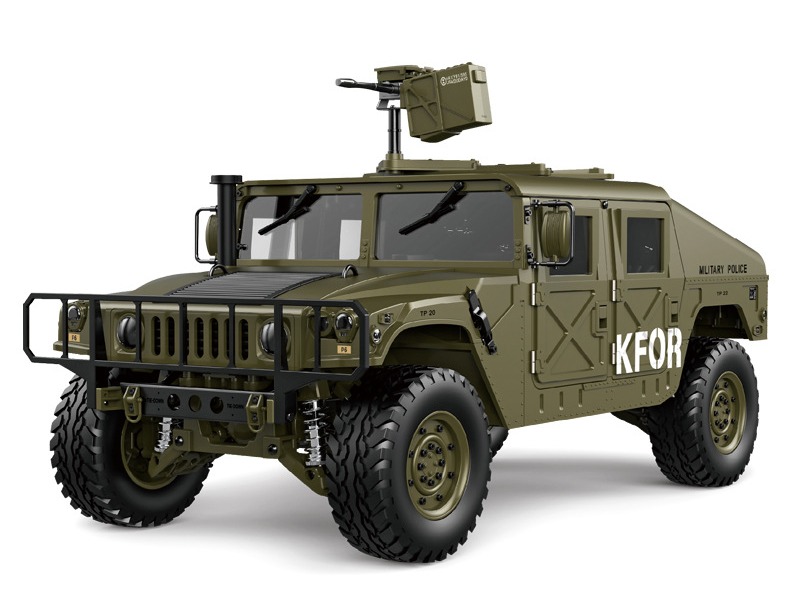Do RC cars overheat?

Yes, RC cars can overheat. This is a common problem faced by those who own RC vehicles, because the heat generated from the engines and electric motors can cause components to break down or malfunction. Heat can also affect the performance of the vehicle, causing it to run slow or less efficiently.
Due to the nature of RC cars, they are more prone to overheating than other toy cars. The main reason for this is because they are generally more powerful than other models. RC cars typically have powerful electric motors and engines, which generate a lot of heat during operation. This heat can build up quickly and cause damage to components and reduce performance.
For this reason, it is important to take precautions to prevent your RC car from overheating. Firstly, keep the battery pack and other components cool. Make sure they aren’t left in direct sunlight and take extra care in humid or hot environments. If possible, try to keep them out of direct sunlight and provide ventilation.
In addition, it is important to keep your car clean. Dirt and dust can block air ventilation and trap increasingly hot air around components and parts. Cleaning the car helps to protect the components and reduce the risk of overheating.
When using RC cars, pay attention to the sound and smell of the engine. If the engine is sounding louder than it should, it may be an indication that it is beginning to overheat. If you smell a burning smell, it is likely an indication that the car is overheating. If either of these happen, you should remove the car from use and allow it to cool down.
It is also important to maintain the car properly. This means replacing any worn or damaged parts, such as batteries and throttle cables, and keeping the motors and engine well-oiled and lubricated. This helps to reduce friction, which is one of the major causes of overheating.
Finally, it is important to be smart about how you use your RC car. Try to avoid running them for extended periods of time on full power or racing them against other cars. This type of use can cause the car to overheat quickly, which could damage components and reduce performance.
In conclusion, RC cars are prone to overheating due to the powerful engines and electric motors they contain. To keep your RC car in good condition and prevent it from overheating, make sure to use it in a safe and responsible manner, keep it clean and in a cool, well-ventilated environment, and be aware of the signs that it may be overheating.
Comments / Question
2. Make sure to check the air filter regularly and replace it when necessary.
3. Make sure to check the motor and battery connections for any loose or corroded connections.
4. Make sure to check the motor and battery temperatures regularly and keep them within the recommended temperature range.
5. Make sure to use the correct type of motor oil for your RC car.
6. Make sure to use the correct type of battery for your RC car.
7. Make sure to keep your RC car away from direct sunlight and other sources of heat.
8. Make sure to keep your RC car away from water and other sources of moisture.
9. Make sure to keep your RC car away from dust and other sources of debris.
10. Make sure to keep your RC car away from extreme temperatures.
2. Check the air vents and make sure they are not blocked by dirt or debris.
3. Make sure the motor is not over-geared and the battery is not overcharged.
4. Check the motor for any signs of wear or damage.
5. Make sure the car is not running on a surface that is too hot.
6. If the car has a cooling fan, make sure it is working properly.
7. If the car has an air filter, make sure it is clean and not clogged.
8. Make sure the car is not running for too long without a break.
2. Make sure the motor is clean and free of dirt and debris.
3. Make sure the battery is charged and not overcharged.
4. Make sure the motor is not running too hot. If it is, reduce the speed or turn it off.
5. Make sure the car is not running for too long. Take breaks between runs to allow the car to cool down.
6. Make sure the car is not exposed to direct sunlight for too long.
2. Excessive smoke or steam coming from the engine
3. An unusually loud engine noise
4. A burning smell coming from the engine
5. The motor becoming excessively hot to the touch.
2. Overworking the motor by driving the car too fast or too hard.
3. Not cleaning the engine or cooling areas of the car regularly.
4. Not allowing the motor to cool down after a run.
5. Using a battery that is too powerful for the car.
6. Badly maintained or damaged motor or battery.
7. Not using the right type of oil or lubricant.
8. Using a lower grade of fuel.
9. Clogged air filter.
10. Lack of airflow or ventilation around the engine.

